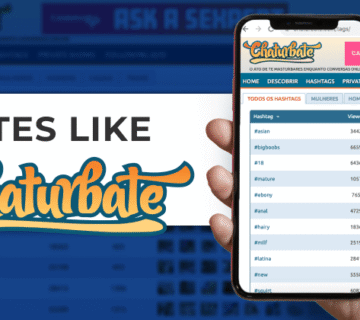The landscape of romantic relationships has undergone significant transformation in recent years, and by 2025, modern relationship expectations reflect evolving social values, technological advances, and shifts in individual priorities. Singles today seek deeper emotional connections while balancing independence, authenticity, and flexible lifestyles. Understanding these contemporary relationship expectations can help individuals navigate love with clarity, confidence, and intention.
This comprehensive article explores the key facets of modern relationship expectations in 2025, highlighting emerging trends, communication norms, the role of technology, and evolving definitions of commitment.
The Shift Toward Emotional Authenticity and Vulnerability
Contemporary relationships emphasize emotional transparency and vulnerability more than ever before. In 2025, partners expect openness about feelings, fears, and aspirations as foundational to intimacy. The old taboo against discussing mental health, insecurities, or personal struggles has diminished, replaced by a culture that celebrates honesty and emotional courage.
This shift fosters deeper trust and connection, allowing couples to engage in meaningful dialogue and mutual support. Rather than projecting perfection, vulnerability is embraced as a strength, essential for genuine partnership.
Independence Within Intimacy: The Balance of Autonomy
Modern relationship expectations prioritize a healthy balance between togetherness and personal independence. Couples seek to maintain individual goals, friendships, and hobbies while cultivating shared experiences. Emotional interdependence, rather than dependence, defines modern partnerships.
This means respecting boundaries, encouraging personal growth, and valuing time apart as much as time together. Independence within intimacy allows partners to bring their best selves to the relationship without losing their identity.
Redefining Commitment: Quality Over Convention
Commitment in 2025 is less about traditional milestones like cohabitation or marriage and more about quality, intention, and mutual alignment. Many couples are choosing personalized relationship timelines that fit their unique circumstances rather than adhering to societal expectations.
For example, long-distance relationships have become normalized and even celebrated for fostering communication and trust. Commitment now hinges on emotional availability, consistency, and shared vision rather than physical proximity or formal status.
Communication: The Heartbeat of Modern Relationships
Elevated communication standards are a hallmark of modern partnerships. Partners expect regular and clear communication across multiple channels—texting, calls, video chats, and face-to-face conversations.
Active listening, empathy, and timely emotional check-ins are prioritized. Technology facilitates this with instant connectivity, but it also demands greater digital etiquette and mindfulness to avoid misunderstandings.
Inclusivity and Flexibility in Relationship Models
A significant trend in 2025 is the growing acceptance of diverse relationship structures beyond the traditional monogamous paradigm. Polyamory, open relationships, and other forms of consensual non-monogamy continue gaining visibility and legitimacy.
Moreover, individuals value flexibility to adapt relationship frameworks that best serve their emotional and lifestyle needs. This evolution reflects broader cultural movements toward inclusivity, self-expression, and dismantling rigid norms.
The Role of Technology and Digital Intimacy
Technology remains deeply woven into modern relationships. Dating apps, virtual dates, digital rituals like shared playlists or movie streams, and social media play crucial roles in how couples connect and maintain intimacy.
The concept of digital intimacy—expressing affection, support, and presence through technology—has expanded relationship vocabularies. Thoughtful digital gestures such as timely messages, virtual celebrations, or surprise deliveries enrich connection even across distances.
Mental Health and Wellbeing as Relationship Priorities
Mental health awareness now influences how partners approach relationships. There is an expectation of mutual support for emotional wellbeing, self-care, and boundaries that protect mental health.
Couples are more likely to seek therapy together, integrate mindfulness practices, and communicate openly about psychological challenges. This holistic approach strengthens resilience and understanding within partnerships.
Financial Equality and Shared Responsibilities
By 2025, many partners expect financial transparency, equality, and shared responsibilities in relationships. Traditional gender roles around income and household duties continue to evolve, reflecting more equitable dynamics.
Discussions about money, future planning, and lifestyle choices have become normalized and are viewed as indicators of compatibility and respect.
Navigating Social and Family Expectations
While personal autonomy is paramount, family and cultural expectations still influence relationship dynamics in many communities. Modern partners negotiate these influences with clear boundaries and open dialogue, balancing tradition with individuality.
The modern relationship often requires navigating these external pressures thoughtfully to foster healthy connections.
Conclusion
Modern relationship expectations in 2025 reflect a profound evolution toward emotional authenticity, mutual independence, flexible commitment, and inclusive definition of love. Partners seek relationships defined not by rigid conventions but by quality communication, shared values, and respect for individuality.
Navigating these expectations requires self-awareness, emotional intelligence, and adaptability. By embracing vulnerability, fostering open dialogues, and integrating technology mindfully, couples create partnerships that are meaningful, resilient, and deeply satisfying.
For more insights on contemporary relationships and evolving dating culture, explore the expert perspectives at Psychology Today – The New Rules of Dating.








[…] Read More: Modern Relationship Expectations in 2025: Navigating Love in a Changing World […]